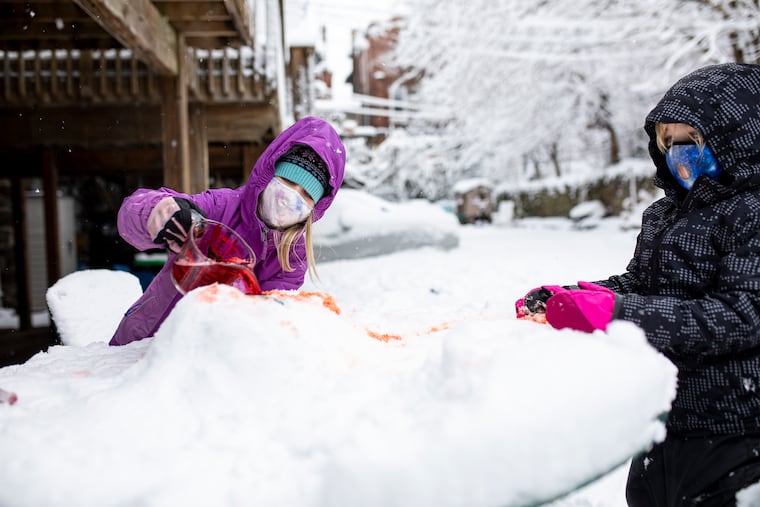New York City schools declared no more snow days. What’s Philly’s take?
Christina Clark, a spokesperson for Philadelphia schools, said when weather threatens safe, in-person school operations, “the district may make the decision for schools to engage in remote learning.”

New York City’s schools chancellor made news this week when he said snow days were a thing of the past for the nation’s largest school system.
David C. Banks, chancellor of New York’s Department of Education, said in an interview with Good Day New York on Tuesday that “there technically are no more snow days.”
So what about Philly?
“The district may make the decision for schools to engage in remote learning.”
While Philadelphia School District officials stopped short of making the same declaration Wednesday, they signaled that virtual learning capabilities make canceling school for winter weather far less likely.
Christina Clark, a spokesperson for Philadelphia schools, said that when weather threatens safe, in-person school operations, “the district may make the decision for schools to engage in remote learning.”
There’s precedent: The district exercised its virtual option in January, when officials decided a bad weather forecast precluded in-person learning.
Still, Clark said, “the district knows that our students learn best in-person and is committing to keeping students in schools as much as possible. When weather isn’t expected to impact the entire day, the district will operate either a late start or early dismissal to provide quality in-person learning.”
» READ MORE: Is a snow day coming? It depends on the school district.
All-district closures are still on the table, though.
”In emergency situations when schools cannot adequately plan or prepare for remote learning, the district may close schools completely,” Clark said.
Around the region, some school systems have chosen to parlay technology and practices learned during the COVID-19 pandemic into preserving instructional time when it snows. Both Pennsylvania and New Jersey require students to be in class for at least 180 days; historically, some schools had to take away holidays or extend the last day of school if too many snow days were called.
But others have called snow days a cherished ritual they’re unwilling to ditch.
Neshaminy Superintendent Robert McGee, in a 2020 letter to families, said the district was keeping inclement weather days because, in part, they “serve as a rite of passage for many family traditions like cooking snow day meals, sleeping in, breakfast, playing games, building snowmen, watching movies, baking cookies, etc.”